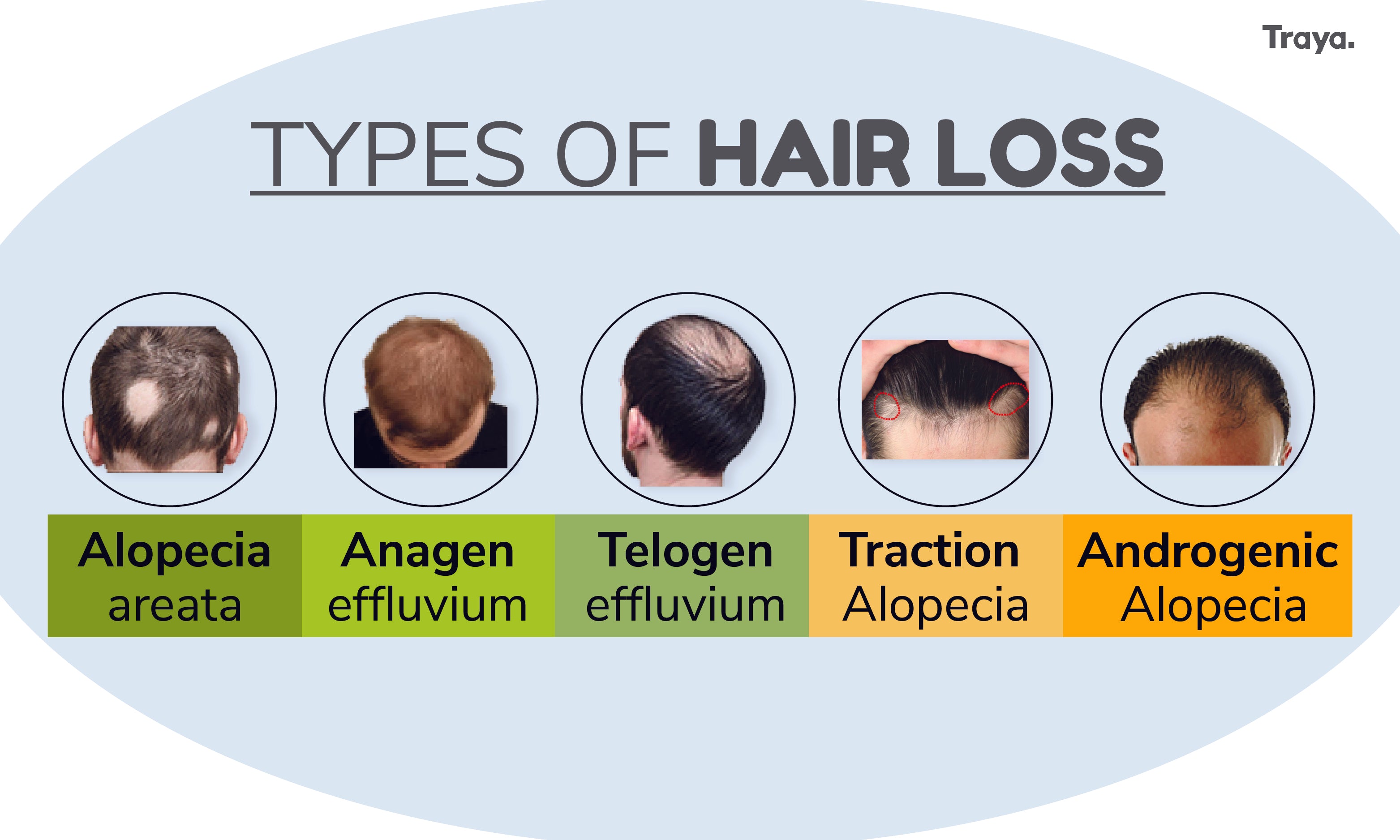Hair loss is just problematic, many men and women feel self-conscious when they see their growing bald patches or a receding hairline, and while you are going through your hair loss trauma, several people start telling you the “hair facts”. Some say it is the fault of your brushing comb, while some point towards your favourite hat. These so-called facts only confuse you more, and among these myths, the actual culprit is often hidden. So, let’s decode a popular question, can stress cause hair loss? Myth or fact.
What is hair loss?

Hair loss cannot happen in a day or two. It develops gradually over time and is a fairly common occurrence that can affect any age group. Knowing if you are experiencing normal hair shedding or actual hair loss is essential. It can range from mild thinning to total baldness due to different reasons. Some of these categorial hair loss types include:
-
Alopecia Areata:
It is an autoimmune disease that triggers the immune system to attack its hair follicles. It can result in small bald patches to complete hair loss.
-
Anagen Effluvium:
It is a cycle of rapid hair loss. It usually happens due to inflammation or fracture in hair shafts as a side effect of chemotherapy or radiation therapy.
-
Telogen effluvium:
It is a type of sudden hair loss that occurs due to traumatic shock periods, such as periods of extreme stress that can be emotional, physical, or due to any severe illness.
-
Traction Alopecia:
Traction alopecia occurs due to physical stress or pressure also signified by the word 'traction’ or ‘pull’ on the hair, such as wearing tight ponytails, braids, or wild hair pulling habits.
-
Androgenic alopecia:
Also popularly known as Female or Male pattern baldness. This type of condition is linked to the overproduction of DHT or dihydrotestosterone, which gradually causes hair follicles to shrink, a process called miniaturization. Stress is known to hasten this process by creating hormonal imbalances.
So, coming back to the question, can stress cause hair loss? The answer is true, yes. Stress can be the fundamental reason for your hair loss. However, the pressure of your daily job or nagging boss is unlikely to cause hair loss. Subjecting your body to too long unknown periods of extreme stress can create problems for your hair.
How stress triggers hair loss?
Stress is your body’s reaction to a feeling of emotional and physical discomfort for a longer time. It negatively affects your body and becomes a part of you without you realizing it. Hair loss could happen due to a variety of reasons, including pregnancy, illness, injury, and medication, among other things. Stress also weakens your immune system, making you more vulnerable to illnesses. For example, when one suffers from flu or diarrhea, one tends to lose hair as the body is in shock and takes time to reorganize its defenses against toxins.
Let’s try to understand how stress affects the hair cycle. An adult hair scalp contains approximately more than 10,000 hair follicles. Each hair follicle constantly cycles between the rest and growth phases. The majority of the hair follicles, at any given time, are in the anagen or growth phase. When the hair follicles reach the telogen or resting phase, shredding of hair occurs. A sudden trigger like significant emotional or physical stress causes an abnormal shift of all the follicles to the resting phase, and an episode of Telogen effluvium occurs.
Stress factors for Telogen Effluvium
A single bad day cannot trigger hair loss. Some factors that qualify as triggers include:
-
Pregnancy:
-
Chronic Depression:
-
Childbirth:
-
Severe Anxiety:
-
Chronic diseases:
-
Malnutrition or eating disorders:
Deficiency of any vital nutrient which is essential for hair health can serve as a trigger.
How to cope with stress?
Stress disturbs your entire well-being. It hinders your thinking capacity and lets you focus only on the negative perspectives in life. When the entire body is flowing with negative thoughts, it starts affecting your body parts, such as you may start experiencing increased hair fall followed by hair loss. Stress management is essential to ensure your sanity and well-being. While there is no universal way to cope with stress, there are some valuable tips you can practice daily.
- The first and most crucial step is identifying the source of stress and what is exactly causing it. Then it’s time to eradicate it. Start at a slower pace and steadily work towards eliminating your bad habits.
- Open up! Unnecessary stress is caused when a person starts bottling their feelings inside instead of speaking them out. Talk to your family, friends, or anyone that can listen to you. This will fill you with a feeling of calmness.
- Apart from these, the most frequent problem lies in the body itself. This means that your stress is due to internal body factors. These factors include a diet rich in sugar, sodium, or processed food. Another significant factor can be Ayurvedic doshas (Vata dosha, Pitta dosha, Kapha dosha). All these things can interfere with your normal body function and stimulate the excessive release of cortisol, the stress hormone, causing hair loss.
We, at Traya, work towards identifying the root cause of the problem. We are backed by three sciences, namely Ayurveda, Nutrition, and Dermatology. We believe that one of the significant reasons hair loss goes undetected is the assumption that it is a phase or temporary and will get better over time. What will help is understanding what is causing your hair loss and how to get the best treatment. To start your holistic treatment to reduce hair loss from stress, book an expert hair session with Traya.
Treatment Options for Hair Loss

It is estimated that there is at least a three-month time gap between the onset of the stress period to the actual hair loss time. After that, the recovery phase is most likely to follow. Several treatment options can be explored if there is a delay or no recovery phase.
-
Multivitamins:
Nutritional deficiency can occur due to various reasons and disturbs the normal hormonal cycle, which in turn can cause more production of stress hormones in the body. Traya offers non-sugary multivitamins for hair with a combination of all essential vitamins and minerals that will boost your hair's health. Traya's vitamins for hair regrowth improve your follicle health and allow for thick and healthy hair growth.
-
Minoxidil:
At the time of stress, minoxidil can be applied for faster hair recovery. It is a vasodilator that increases the blood flow of nutrients and oxygen to the damaged hair follicles. It stimulates the follicles into the anagen phase and increases each follicle's growth phase, which helps promote the growth of new hair. Shop here for minoxidil. Other over-the-counter drugs include Finasteride, Corticosteroids, etc. Consult a doctor to know what is best suited for you.
-
Meditation, Yoga, and Daily Exercise:
These techniques can greatly help and do wonders along with other medical treatments. Learn deep breathing techniques and yoga. They have a soothing effect on the mind and considerably reduce hair loss from stress and anxiety. The benefit of these systems is that they have a holistic approach to treatment. They will relax the body and bring it to a state of calm, and at the same time, they will soothe and settle the mind.
-
Healthy Diet:
Like any other body part, hair needs to be taken care of and requires proper nourishment to maintain its growth cycle. Make sure to include all the necessary vitamins, minerals, and fats to deliver the needed nutrition. Apart from a healthy diet, care must be taken to wash and dry it gently. While styling your hair, take precautions to ensure that there is no rough handling, which could damage your hair.
Takeaway:
Stress causing hair loss is a real thing and can be the most significant factor for your hair loss. Managing your stress levels and taking good care can help your hair regrowth. You have to take out time each day to address your hair problems and be consistent with the treatment.
At Traya Health, we recognize stress as a root cause of hair loss and design our treatment techniques to address these problems with a holistic approach. Our experts analyze your issues in detail to suggest the best hair regrowth procedures for you to reduce hair loss from stress. Time to bid farewell to hair loss, start your Traya journey today.






































